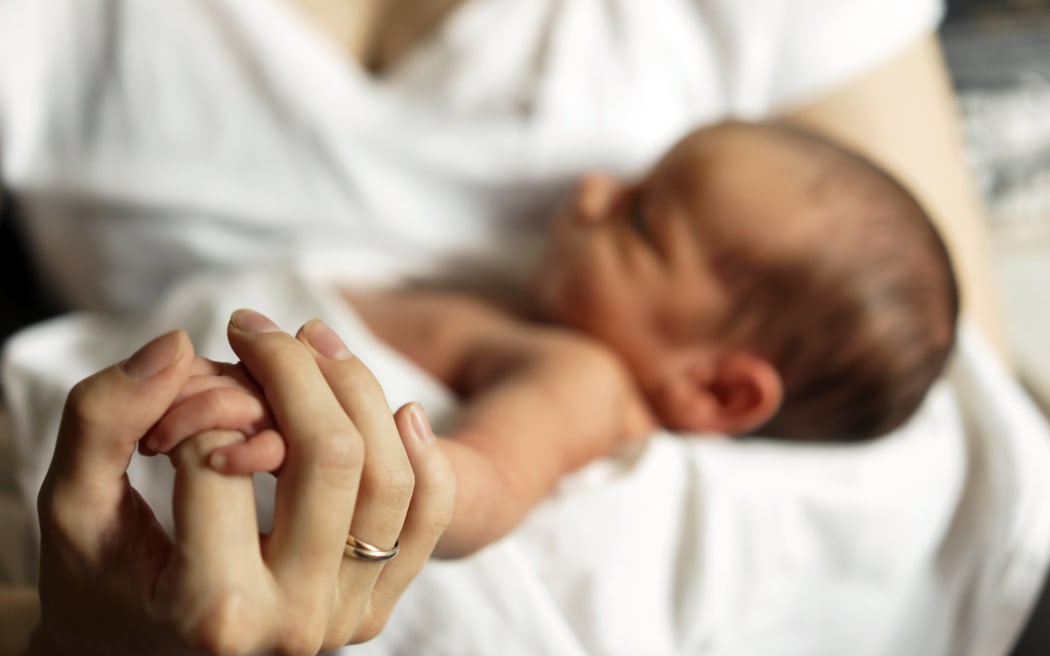Paid parental leave was back in the spotlight last week, after a member's bill from National's deputy leader Nicola Willis – that would've allowed parents to take leave at the same time – was voted down in parliament. The Detail takes a closer look at what the entitlements are, who can get them and how New Zealand compares internationally.

Photo: 123RF
New Zealand's had a paid parental scheme for two decades.
While the 26 weeks on offer is significantly more than the 12 weeks available when the entitlement was introduced in 2002, other countries are doing much better.
"Norway has up to a year for each parent, and then a guaranteed ECE [early childhood education] place for the child," explains Dr Suzy Morrissey, director of policy and research at the Retirement Commission.
While Morrissey's current role is focused on issues affecting people later in their lives, she's done a lot of research into policy and gender, and did a PhD examining paid parental leave in New Zealand and Norway.
She says compared to other countries, New Zealand does poorly when it comes to access to paid parental leave, the amount paid and the duration of it.
The 26 weeks available has to be shared between parents and there's no separate leave for the non-primary parent.
The payment itself, which is funded by the government, is just over $700 a week. That would amount to $37,000 a year, which is about $10,000 below minimum wage.
Morrissey says the minimum payment, recommended by the International Labour Organisation and the European Commission, is two-thirds of prior earnings.
"It's great that we have [paid parental leave], don't get me wrong, it's a vast improvement on not having it, but the way it's structured, it's still very much maternity leave, still only two percent of it is used by fathers in New Zealand, and arguably that's in part because of that 26-week duration and there's not much to share. Probably there's an element of the fiscal constraints in there because of the amount it's paid at."
Making workplaces more family-friendly is part of Dr Ellen Joan Nelson's mission. She's a leadership consultant who works with companies to help them better support parents.
"A lot of the companies do just basically provide what is required of them from a legal perspective when it comes to paid parental leave," she says.
"There are other organisations that go above and beyond. The paid parental leave is part of it, but it's also about what happens when they return from paid parental leave."
Nelson's lucky enough to be able to work flexibly.
"I don't generally work Fridays, because that's when I've got my two-year-old ... I effectively work school hours. I do travel a little bit for work and where possible I bring the kids with me."
Nelson says there are plenty of gains for employers who are able to offer these sorts of arrangements.
"The more that [organisations] do to basically make life less tricky, the better it is for the organisation because when their staff member is at work they really perform for them," she tells The Detail.
''Organisations that are more creative around 'when might be the hours that we work so that someone can go and do school collection?' – or 'maybe we don't need to set a team meeting at four o'clock in the afternoon, perhaps we can put that during school hours' ... it's just about doing practical steps to make a tangible improvement for the lives of those parents."
Find out more about how our parental leave scheme stacks up by listening to the full episode.
Check out how to listen to and follow The Detail here.
You can also stay up-to-date by liking us on Facebook or following us on Twitter.

Photo:


